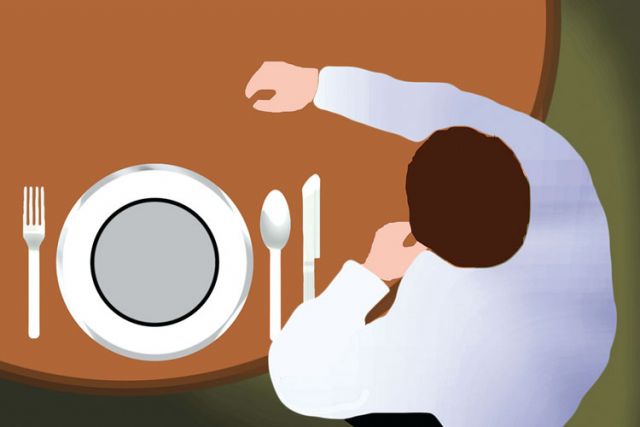For Catholics, the practice of fasting has by and large fallen off the screen, due in large measure to the minimalistic interpretation of what Church members are told “fasting” means: “Take only one full meal. Two smaller meals are permitted as necessary, but eating solid foods between meals is not permitted.”
No need to replace religious coinage
By Fr. Ron RolheiserNo one, be that an individual or an institution, controls access to God. Jesus makes this abundantly clear.
Great things come to those with faith
By Fr. Scott Lewis, S.JSecond Sunday of Lent (Year A) March 9 (Genesis 12:1-4; Psalm 33; 2 Timothy 1:8b-10; Matthew 17:1-9)
All great things begin with an act of faith and trust. The Western religious traditions — Judaism, Christianity and Islam — trace their beginnings to the command of God to Abraham and his response.
The Church’s great treasure hunt
By Mary MarroccoIn one of my favourite stories, four children travel to a secret country. On their second trip, they discover the ruins of a castle. Together they descend a dark, cold staircase into a vast underground chamber. Shining flashlights all round, they discover it’s filled with gems, jewels and treasures, all covered over with thick layers of dust.
Our pagan resistance to the other world
By Fr. Ron RolheiserSometimes while presiding at the Eucharist or preaching, I scan the faces in the front pews. What do they reveal? A few are eager, attentive, focused on what’s happening, but a goodly number of faces, particularly among the young, speak of boredom, of dram duty and of a resignation that says: I have to be in the church just now, though I wish I was elsewhere.
Holiness, wholeness and depression
By Fr. Ron RolheiserExternal appearances can easily fool us, and often do. That’s true in every area of human life, and religion is no exception.
By walking in God’s way, everything will work out
By Fr. Scott Lewis, S.JEighth Sunday in Ordinary Time (Year A) March 2 (Isaiah 49:14-15; Psalm 62; 1 Corinthians 4:1-5; Matthew 6:24-34)
Many at one time or another have felt abandoned or forgotten by God. Faced with the many painful and disconcerting situations that life can deal us, they wonder if God cares or even remembers them.
Our struggle for empathy and genuine love
By Erik CIn our normal, daily lives we are invariably so self-preoccupied that we find it difficult to accord others the same reality and value we give to ourselves. It’s difficult for us to live in true empathy because we are forever consumed with our own heartaches and headaches.
Called to be different, for God’s sake
By Fr. Scott Lewis, S.JSeventh Sunday in Ordinary Time (Year A) Feb. 23 (Leviticus 19:1-2, 17-18; Psalm 103; 1 Corinthians 3:16-23; Matthew 5:38-48)
What does it mean to be holy? We use the word often and usually have in mind someone who is kind, generous and eager to do the will of God. The concept had a somewhat different connotation in the ancient world, especially in Israel. The Hebrew word kadosh described something that was set apart from the ordinary and dedicated to God. This would be true of objects, such as the utensils used for sacrifice and worship, as well as the temple itself with its various zones of ascending holiness. It also described the land of Israel, with holiness increasing as one moved closer to Jerusalem the holy city and its temple.
We are not passive victims of fate
By Fr. Scott Lewis, S.JSixth Sunday in Ordinary Time (Year A) Feb. 16, 2014 (Sirach 15:15-20; Psalm 119; 1 Corinthians 2:6-10; Matthew 5:17-37)
Accepting responsibility for one’s actions is a rather uncommon human trait. People love to blame everyone and everything — it’s the fault of my parents, my religion, my environment, my genes or even God. The role of victim is more comfortable than that of perpetrator.
The imperative for wholeness inside Christ
By Fr. Ron RolheiserFor more than a thousand years, Christians have not had the joy of being one family around Christ. Although there were already tensions within the earliest Christian communities, it was not until the year 1054 that there was a formal split so as to, in effect, establish two formal Christian communities, the Orthodox Church and the Catholic Church in the West. Then, with the Protestant Reformation in the 16th century, there was a further split within the Western Church and Christianity fragmented still further. Today there are more than a hundred Christian denominations, many of them, sadly, not on friendly terms with each other.












